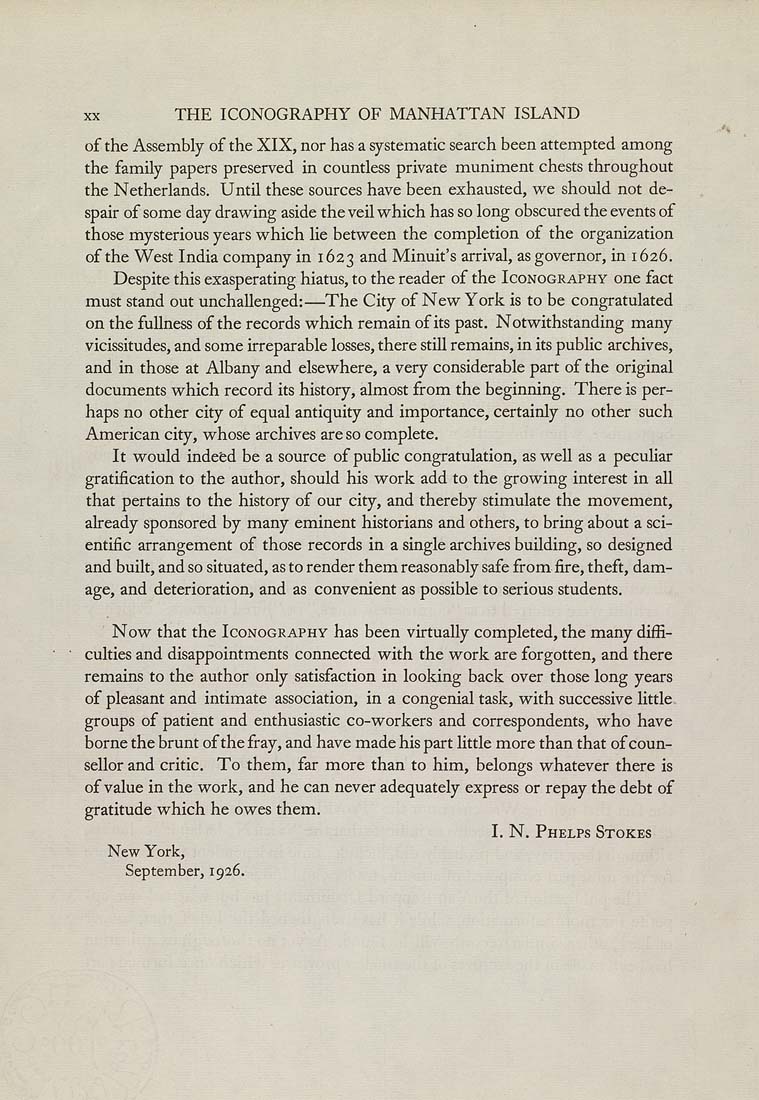XX TFIE ICONOGRAPHY OF MANHATTAN ISLAND
of the Assembly of the XIX, nor has a systematic search been attempted among
the family papers preserved in countless private muniment chests throughout
the Netherlands. Until these sources have been exhausted, we should not de¬
spair of some day drawing aside the veil which has so long obscured the events of
those mysterious years which lie between the completion of the organization
of the West India company in 1623 and Minuit's arrival, as governor, in 1626.
Despite this exasperating hiatus, to the reader of the Iconography one fact
must stand out unchallenged:—The City of New York is to be congratulated
on the fullness of the records which remain of its past. Notwithstanding many
vicissitudes, and some Irreparable losses, there still remains, in its public archives,
and in those at Albany and elsewhere, a very considerable part of the original
documents which record its history, almost from the beginning. There is per¬
haps no other city of equal antiquity and importance, certainly no other such
American city, whose archives are so complete.
It would indefed be a source of public congratulation, as well as a pecuHar
gratification to the author, should his work add to the growing interest in all
that pertains to the history of our city, and thereby stimulate the movement,
already sponsored by many eminent historians and others, to bring about a sci¬
entific arrangement of those records in a single archives building, so designed
and built, and so situated, as to render them reasonably safe from fire, theft, dam¬
age, and deterioration, and as convenient as possible to serious students.
Now that the Iconography has been virtually completed, the many diffi¬
culties and disappointments connected with the work are forgotten, and there
remains to the author only satisfaction in looking back over those long years
of pleasant and intimate association, in a congenial task, with successive little
groups of patient and enthusiastic co-workers and correspondents, who have
borne the brunt of the fray, and have made his part little more than that of coun¬
sellor and critic. To them, far more than to him, belongs whatever there is
of value in the work, and he can never adequately express or repay the debt of
gratitude which he owes them.
I. N. Phelps Stokes
New York,
September, 1926.
|








